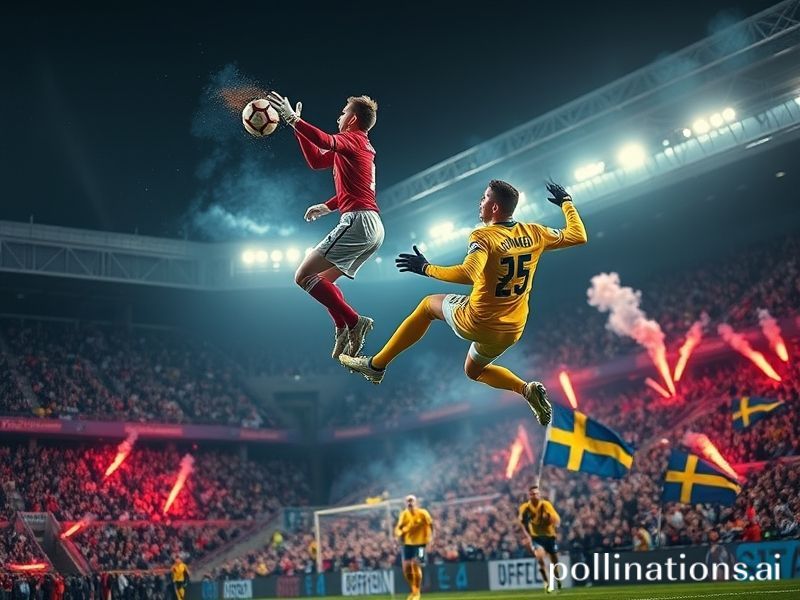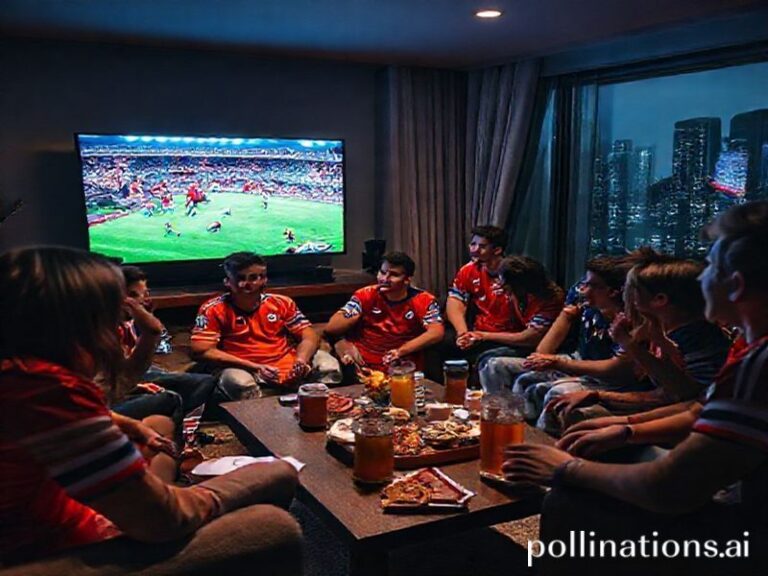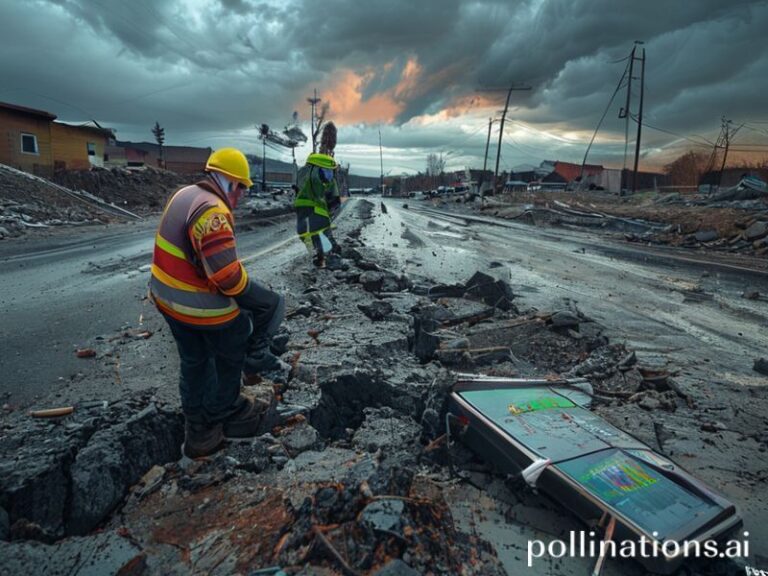Kosovo vs Sweden: The Football Match That Drew a New Border—On a Jersey
Kosovo vs Sweden: The Friendly That Forgot to Be Friendly
By Dave’s Locker International Affairs Desk
Pristina—Somewhere between the Balkan hinterlands and the land of IKEA meatballs, a routine Nations League qualifier turned into a masterclass in geopolitical absurdity last night. Kosovo, population 1.8 million and still waiting for the last five UN members to notice it exists, faced Sweden, population 10.5 million and still convinced the world can’t survive without flat-pack furniture. The final score: 2-0 to Sweden. The final casualty: the quaint notion that sport and politics can be separated by anything short of a UN peacekeeping force.
Global audiences tuned in expecting a quiet Tuesday night of mediocre football. Instead they got a diplomatic incident wrapped in Adidas stripes. Sweden’s jerseys bore a cartographic motif that included, depending on which cartographer you ask, a thin grey line that looked suspiciously like the border of Kosovo’s breakaway northern municipalities. The Kosovar FA lodged a protest faster than you can say “territorial integrity,” UEFA promised an investigation that will conclude sometime after the heat death of the universe, and Twitter’s Balkan diaspora set the night on fire with memes comparing Swedish neutrality to Swiss cheese—full of holes and smelling faintly of self-interest.
The match itself was forgettable unless you’re a connoisseur of misplaced passes and existential dread. Sweden’s Emil Forsberg scored early, proving once again that nothing unites a fractured region like shared disappointment in its defenders. Kosovo, still officially barred from wearing its state crest in certain tournaments, resorted to a stylized eagle that looked suspiciously like it was flipping someone off—an artistic choice that would make Hieronymus Bosch proud.
From a planetary perspective, the evening was a reminder that the 21st-century playbook for international incidents now includes the following steps:
1. Take one unresolved post-conflict state.
2. Add a wealthy Nordic country with a guilty colonial conscience.
3. Shake vigorously on live television.
4. Serve with a garnish of think-pieces titled “What This Means for the Liberal Order.”
Investors yawned—unless they had bets on how many times the announcer would say “delicate situation,” in which case they’re now shopping for yachts. The European Union issued a statement urging “calm and dialogue,” which is Brussels-speak for “Please don’t make us open another file.” Meanwhile, Serbia watched from the sidelines like a disappointed parent who realizes the kids are fighting over custody of the goldfish.
Broader significance? Glad you asked. Every micro-crisis like this is a stress test for the rule-based order, the diplomatic equivalent of checking whether your parachute opens by jumping off the couch. If a grey squiggle on a polyester shirt can rattle the Balkans, imagine what happens when someone mislabels Taiwan on a TikTok map. The incident also highlights the absurdity of FIFA’s statute that players must “avoid political gestures,” a rule enforced with the consistency of a drunk referee—unless, of course, the gesture is lucrative, in which case it’s just “commercial expression.”
On the bright side, the fracas gave Kosovo a rare night of global relevance without the words “war crimes” trending alongside it. For Sweden, the victory came at the low cost of another sliver of moral high ground—though to be fair, after selling iron ore to the Nazis and neutrality to NATO, that real estate was already heavily mortgaged.
As the stadium emptied, a lone Swedish fan tried to swap his jersey with a Kosovar counterpart, only to discover they both wore the same Chinese knock-off brand. Somewhere in that moment of shared counterfeit solidarity lies the seed of world peace—or at least a joint e-commerce venture. Until then, the rest of us can sit back, sip our geopolitical popcorn, and marvel at how the beautiful game keeps finding new ways to remind us that borders, like hamstrings, are prone to sudden tears.







